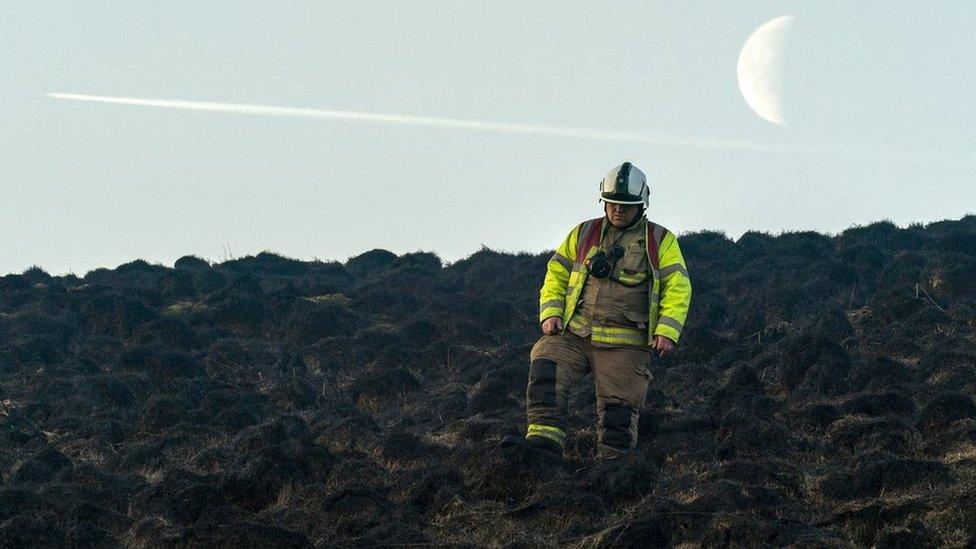Brigades need more firefighters after wildfires, union says
- Published
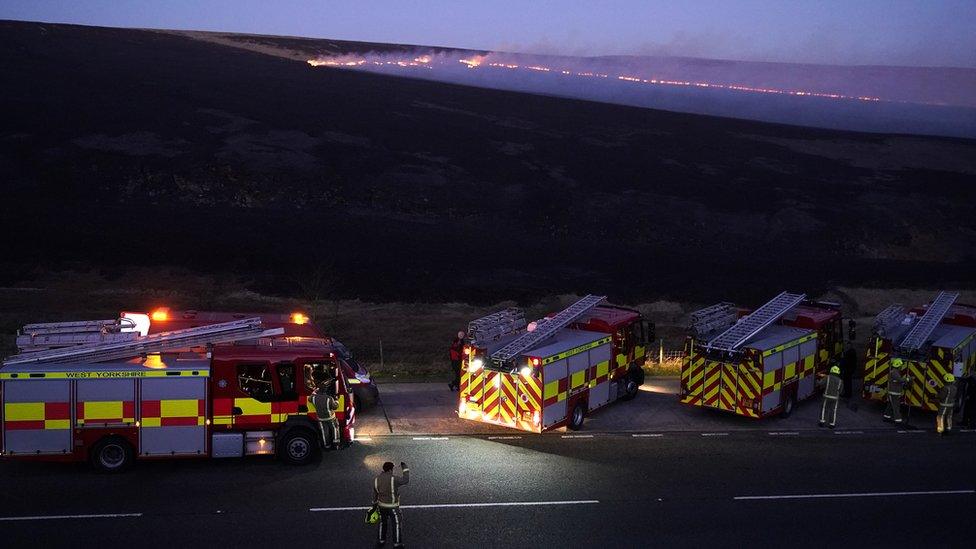
Crews tackling fires at Saddleworth Moor in February
A big rise in wildfires over the past year has put fire services under pressure - and more firefighters are needed, according to their union.
Firefighter numbers are almost 11,500 down on 2010, despite a 1% rise this year, the Fire Brigades Union says.
It wants a recruitment campaign to match recent announcements for the police, schools and the NHS.
In England, the Home Office said in the long term there were fewer fires and fire services had adequate resources.
The FBU used Freedom of Information law to obtain firefighter numbers in each brigade in the UK.
Overall, the figures show there are 19% fewer firefighters than nine years ago.
Firefighter numbers are now:
21% down in England
15% down in Wales
12% down in Scotland
and 10% lower in Northern Ireland
But the union says demand for fire services is rising.
The latest available figures, for 2018-19, show there were 182,825 fires in England, the highest since 2011.
Nearly 39,000 were wildfires, including huge fires on Saddleworth Moor, between Manchester and Huddersfield, contributing to a 62% rise in the last year.
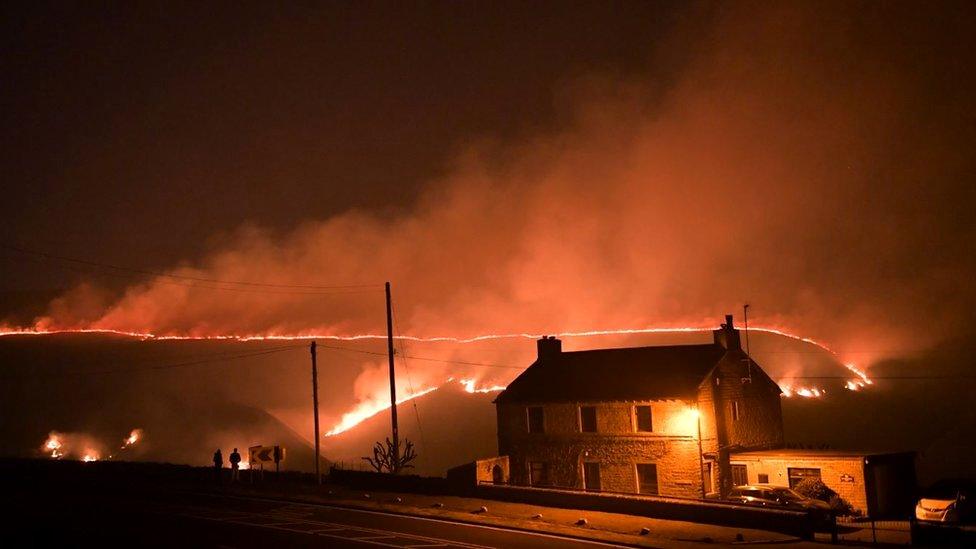
The Saddleworth Moor blaze was one of the biggest moorland fires West Yorkshire firefighters have dealt with
There were also extensive fires in Moray in north-east Scotland, requiring hundreds of firefighters to extinguish them.
The Fire Brigades Union said they were a sign that the warming climate was creating greater demand for the emergency services.
More flooding is another concern. This summer's damage to the Whaley Bridge dam, which was caused by heavy rain, required another big emergency services operation.
The union's general secretary, Matt Wrack, said such incidents meant firefighters had to be brought in from brigades across the UK.
"If this government is serious about tackling the climate emergency," he said, "it needs to invest in our front-line defences - and it is firefighters who are tackling wildfires and rescuing people stranded in flooding.
"Fire and rescue services are in crisis after years of brutal cuts, and this year's measly increase in posts is wholly insufficient to plug the gaps."
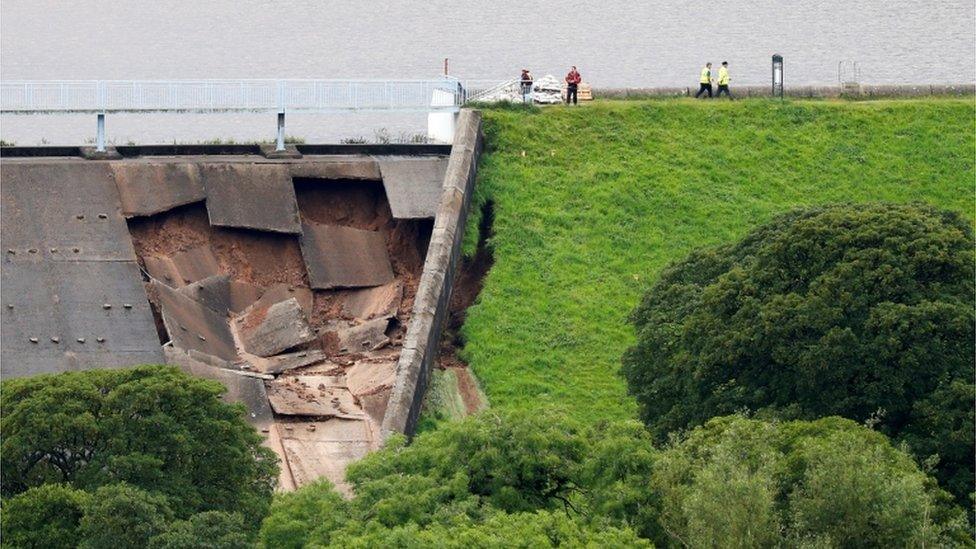
The clay under the Whaley Bridge dam spillway was undermined
The union's position is that demand is now increasing again after a decade when the number of fires fell and fire services were put under pressure to make savings.
Since 2010 there has also been a shift in emphasis, with brigades doing more fire prevention work, as well as responding to 999 calls.
There is also a trend towards merging the management of police, fire and rescue services.
They are funded by a mix of money from national governments, and from council tax.
The Home Office said in a statement it was for each fire and rescue authority to determine the "operational resources" required to deliver services to local communities.
Those which receive a single source of funding from the government in Westminster would be able to spend 2.3% more in 2019-20, and had increasing financial reserves, a Home Office spokesman said.
- Published10 August 2019
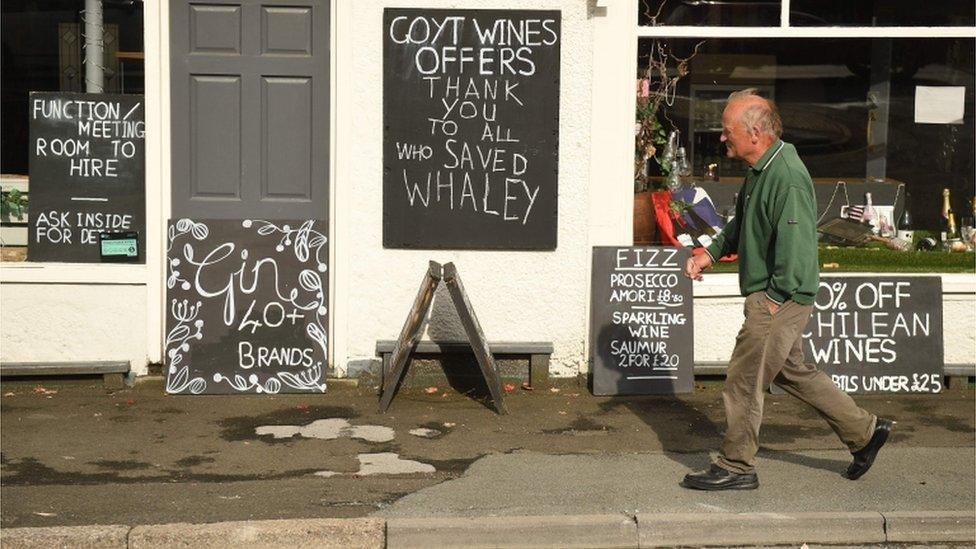
- Published1 August 2019
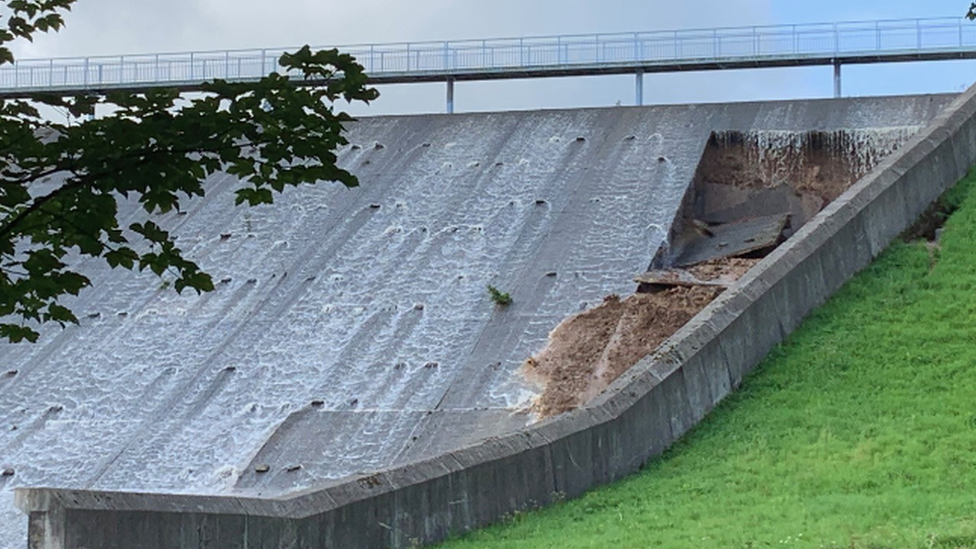
- Published24 April 2019
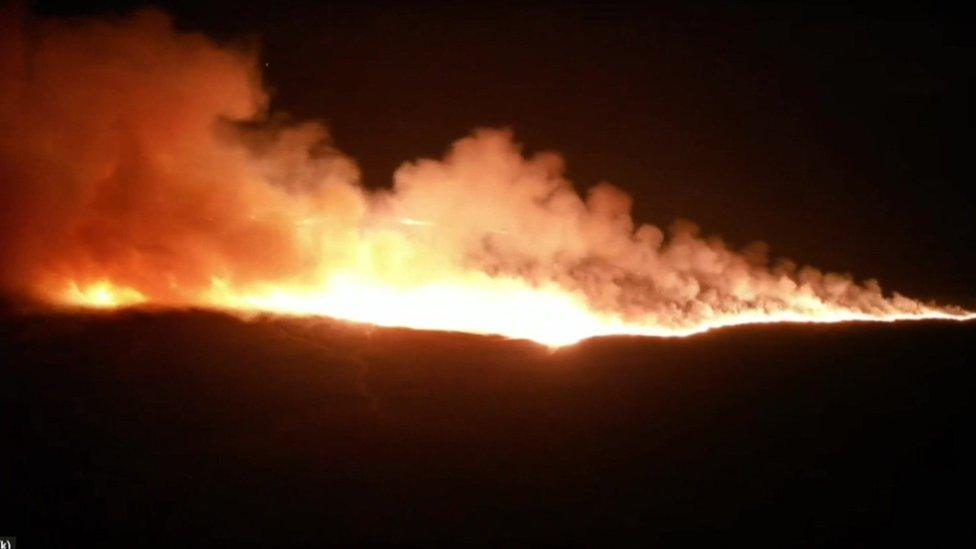
- Published27 February 2019
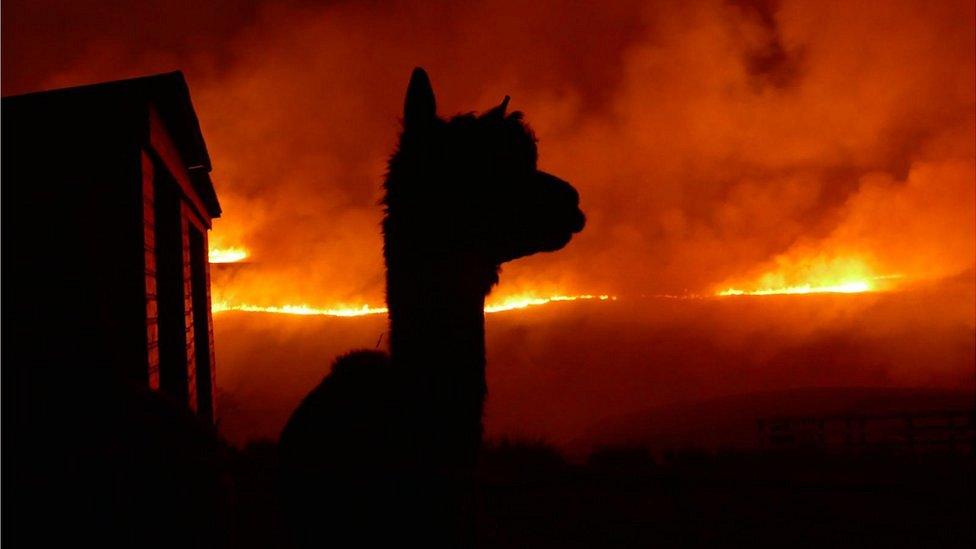
- Published27 February 2019
